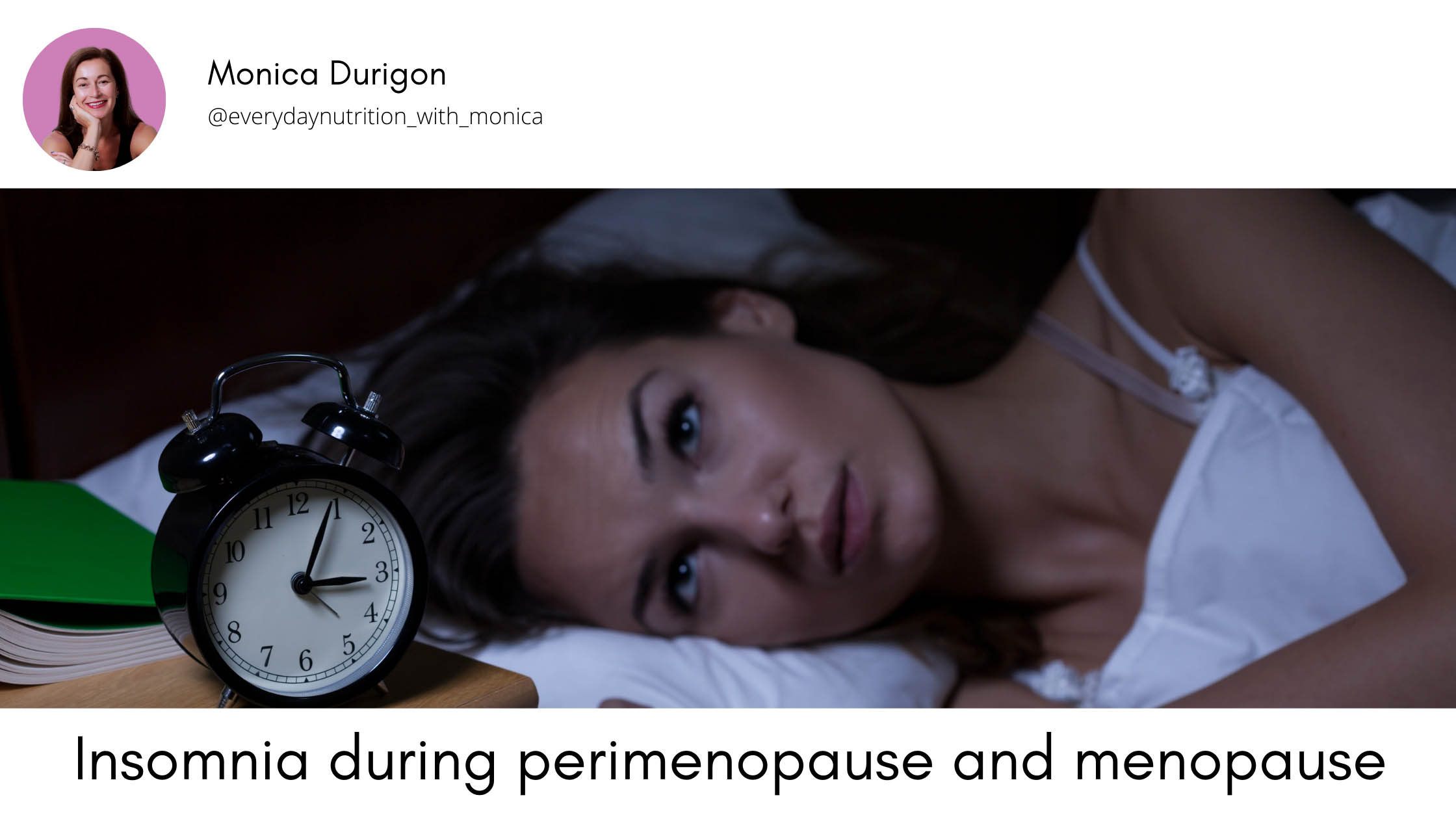Do you feel like you can’t fall asleep at night?
Do your thoughts run wild while trying to get ready to get to sleep?
Do you feel tired but are too wired to go to sleep?
Or perhaps you can fall asleep quickly because you are exhausted, but you find yourself wide-eyed at 3 am and you can’t get back to sleep until 6 am (when your alarm clock tells you it’s time to start your day).
Or maybe…
You wake up wishing you could just crawl back into bed because you’re just so tired and cranky regardless of the number of hours you sleep?
Chances are that if you are a woman over 40, you are not getting enough quality sleep, which could affect your life in several negative ways.
If you don’t get enough quality sleep, your lack of energy can make you ill, and everything becomes ten times more challenging to deal with.
Lack of sleep affects your moods, productivity, focus, weight, and hormonal symptoms.
I have explained how poor quality sleep is damaging for every aspect of your health in my previous blog. In that blog, I also offered six proven lifestyle strategies which my client and I have found beneficial.
Today, I want to explain some common nutrition-related sleep problems that many people are unaware of because the nutrition-sleep connection is not very obvious.
Three main issues can hinder sleep quality: blood sugar imbalance, nutrient insufficiency and gut health.

Blood Sugar Imbalance
The link between blood sugar imbalance and sleep is cortisol. Cortisol is a hormone released by the adrenal glands during high-stress situations or when the body perceives an immediate threat. One of the main actions of cortisol is to stimulate the secretion of glucose from the liver storage into the blood so the body can use it for immediate energy to solve the crisis.
If we eat a diet that constantly skews our blood sugar balance, it becomes harder for the body to regulate it. This means that when you consume an evening meal rich in foods that contains fast-digesting carbohydrates, this will likely lead to the release of high amounts of insulin followed by a quick drop in blood sugar. This kind of blood sugar response stimulates the release of cortisol which either prevent you from falling asleep or wake you up in the middle of the night.
If this is you, I recommend that you try instead for a meal high in healthy fats, an excellent clean source of protein, and some complex carbs.

Nutrient insufficiency
Hormones and neurotransmitters are the body messengers that instruct the body to self-regulate. For our system to build these messengers, we need to provide it with the necessary building blocks.
For example, the sleep hormone melatonin, which signals the body that it is time to unwind and prepare for bedtime, requires adequate amounts of the amino acid tryptophan (from protein sources), folate, vitamin c, B6 and zinc. The critical takeaway message here is that you need to make sure you are consuming a super nutrient-dense, varied and organic diet to avoid pesticides, moulds, heavy metals as much as possible.
Another important consideration is your ability to digest your food properly to absorb those nutrients. As we age, there is a natural decline in stomach acid secretion, which is essential for proper digestion. Stress also has a significant, negative impact on digestion too.

Gut health
Your gastrointestinal tract plays a primary role in absorbing the nutrients needed to make sleep chemicals in the body.
Your gut produces most of your melatonin (not your pineal gland) and is connected to your overall health in complex ways that science does not fully understand yet. If you are suffering from sleep issues, you cannot neglect to check what is going on in your gut.
I recommend that you start by removing toxins from the diet and be proactive in healing the gut lining by consuming foods rich in prebiotics and probiotics such as yoghurt, miso, fermented foods and fibre-rich foods, including resistant starch. If you need more help in assessing your gut health and healing your gut, you can contact me directly by posting a question in my free FB community and I can explain to you the tests we offer.
After addressing the above main areas of the sleep-nutrition connection, you can also consider using some specific nutrients that many of my clients and I have found beneficial to support healthy sleep.

Specific supplements and formulas
#1 Magnesium

Without a doubt, one of the most critical minerals in our bodies and the most important for women over 40!
In terms of sleep, magnesium plays a critical role in regulating melatonin ( the sleep hormone ) and GABA ( the relaxation hormone ). An adequate amount of magnesium is needed to signal the body for sleep.
Magnesium is effective at decreasing anxiety which often accompanies sleep problems. It also helps balance blood sugar, lower blood pressure, and relieve physical tension.
It is the body relaxation master! Many forms of magnesium are available on the market, including citrate, oxide, malate, taurate, sulfate, glycinate, and l-threonate.
I prefer using magnesium bisglycinate as it is a highly absorbable form of magnesium compared to other forms. I usually recommend that my clients take it in the evening with their meal.
#2 Glycine
Glycine is an amino acid ( one of the building blocks of proteins) and plays many roles in the body. When it comes to sleep, studies show that having higher levels of this amino acid may help you fall asleep more quickly, increase sleep quality and promote deeper and more restful sleep and reduce insomnia.
Unlike magnesium, glycine is not yet very commonly used for sleep problems, but many of my clients and I have found it very beneficial. Glycine helps by lowering core body temperature and encouraging blood flow to the extremities.
Lower core body temperature increases the ability to fall asleep and positively affects the length of time you spend in the deep and REM sleep phase. Glycine also impacts serotonin levels, and serotonin is needed to make melatonin.
#3 Adaptogens

Adaptogens are plant extracts that increase the body’s ability to resist the damaging effects of stress and promote or restore normal physiological functioning.
Although they are not typically used as a sleep aid, research shows that they can lower cortisol levels and improve anxiety. Therefore can be helpful for anyone who is suffering from chronic stress or blood sugar imbalances that can raise cortisol in the evening.
I find that ashwagandha, reishi mushroom, cordyceps and Rhodiola help to improve sleep quality and daily energy levels.
#4 Relaxing botanicals

Favourites in my tool kit are melissa (aka lemon balm), passionflower, Californian poppy, hops and chamomile. Valerian can also be helpful, but I found that it might cause vivid dreams in some people.
You can find these in extract forms, in capsules, combined in sleep formulas, or you can safely take them in the form of teas. My personal favourites are Twining’s “Sleep” and “Peace” by Pukka.
As I always state, not all supplements and formulas are universally indicated. You must consult with a qualified nutritional therapist to ensure they are effective and safe for you to take, especially if you have a diagnosed condition and are taking prescription medications.
The supplements that I discuss in this blog are natural, they are not pharmaceutical interventions, but, never the less, nature is a potent ally when used correctly but can also be contraindicated for some of us.
Although sleep issues are widespread in women during perimenopause and menopause, they can undoubtedly be avoided or improved. Pivoting your nutrition, supplementation, and some of your evening rituals can ensure that you can still enjoy a restorative night of deep sleep.
If you are a woman over 40 and are struggling with sleep problems, I am happy to help, reach out, and let’s have a chat.
With love, energy and care






0 Comments